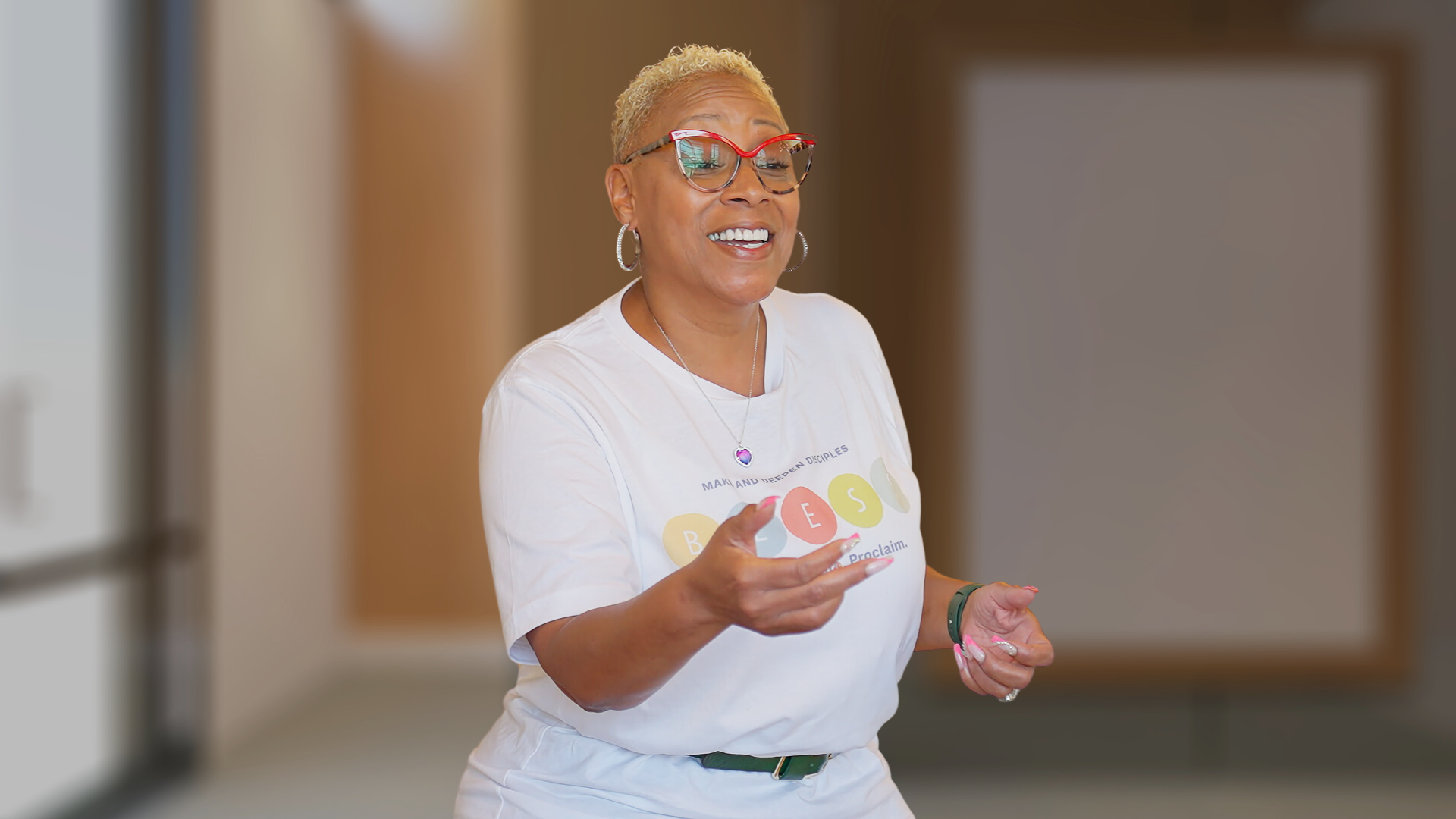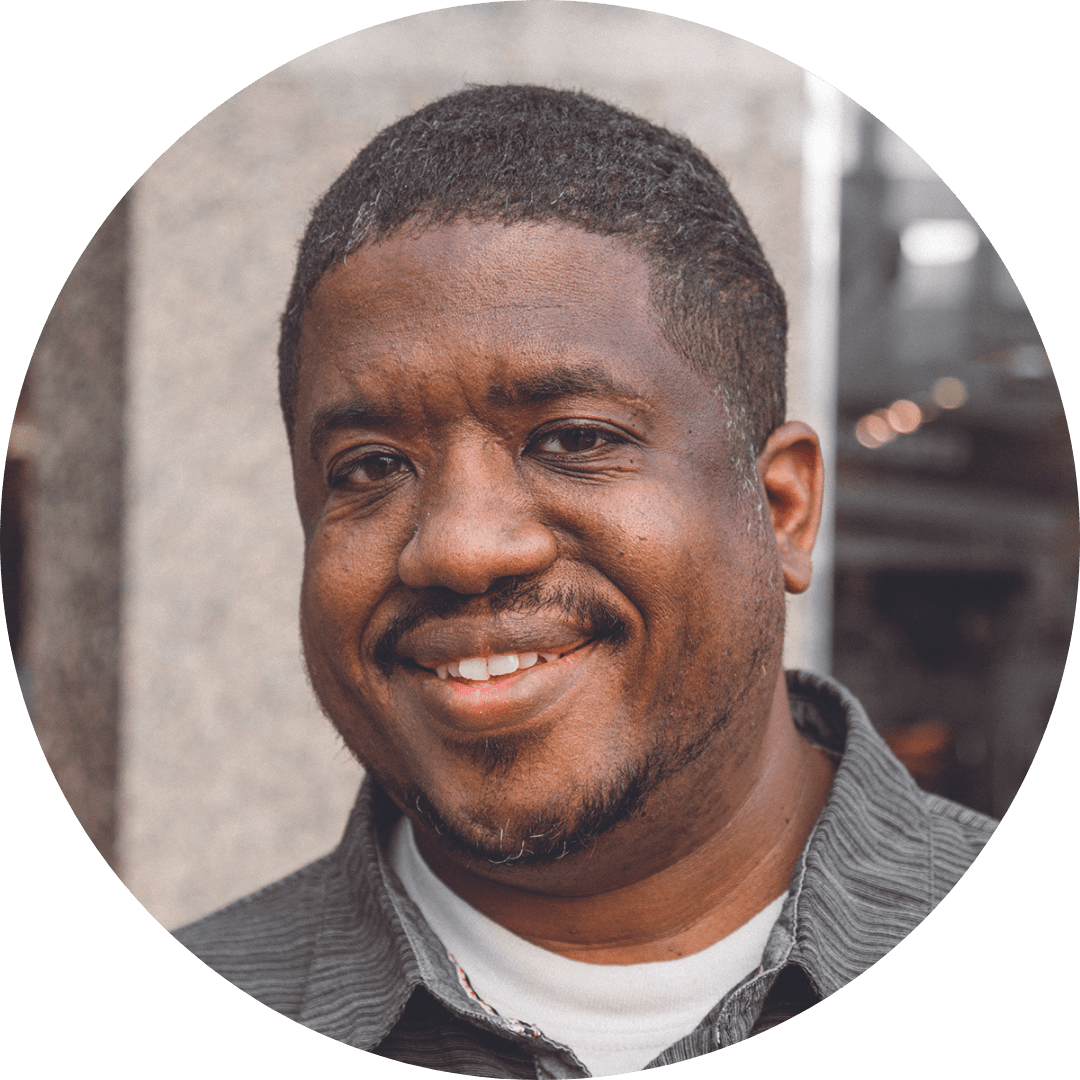Recently the Companion had a virtual sit-down with Ieisha Hawley, new director of evangelism for the Covenant, to talk about evangelism; the upcoming conference, Harvest of Hope; and the BLESS initiative, an acronym that encourages people to “begin with prayer, listen with care, eat together, serve in love, and share your story.” This conversation has been edited for length and clarity.
JELANI: So tell me about the evangelism conference coming up on October 24. What is it, and why is it important?
IEISHA: We know it’s important to invigorate our techniques of how to proclaim the gospel. We put out some surveys, and this is an answer for where people have said they need help, reinvigorating and undergirding our local churches in evangelism post-pandemic. We’re tapping into what churches, large and small, say they are looking for.
JELANI: The Covenant’s most recent evangelism focus has been the BLESS initiative. What has been your experience with BLESS?
IEISHA: Blessing people in the community is something I grew up with. We were known for blessing people during the holidays, people in our community who had less. And not just blessing them, but praying for the people right around us. We just naturally did it as a family, it was a part of our culture, how I was raised. It’s a natural part of who I am.
I came into the Covenant through my home church, Fellowship Covenant Church in Bronx, New York. As one of the associate pastors, I was asked to teach on the BLESS initiative. So I was like, Okay, let me go check this out and see if it really works. I couldn’t be a BLESS champion or advocate unless I actually applied it myself. So I had to use it, tweak it, and cater it to my context so it felt genuine. I’m not at Fellowship Covenant anymore, but they still use this resource. And ever since then, I’ve catered it to whatever context I’m in. I’m a true believer that if you work it, it works.
JELANI: Can you tell us about your own experiences of evangelism?
IEISHA: Back in the Bronx, we were in an urban area, and we were asking, “How do we invite new faces into the congregation?” With each step, we “Began with prayer.” We devised a list, and we prayed over the list. We felt the heartbeat and we felt initiated by the Spirit to go into the community.
As a result, we saw people coming to church on Sundays. People that folks wouldn’t normally invite, got invited. Part of that was the step of “Listening with care.” Instead of always talking, we talked about how to listen and observe what people are really dealing with so that we know how to pray. Along with that was not just inviting people to Sunday service, but first inviting people to a community meal. Getting to know people, building relationships—that’s what eating together does. Then we were able to help people go the next step. “Hey, this is when our services are, and you should come.” We saw an increase of folks who were not just the usual faces.
And then in my church plant, we were trying to figure out how to get people to come to church. We were not in a typical church building—we were in a business outfit, so we were able to get people who wouldn’t normally come into church. We didn’t have a steeple, but we could eat together and have fellowship and Bible studies together. We worshiped on Saturdays, not Sundays, and BLESS helped us to grow the church.
And then COVID hit, so we weren’t out in the community. How could we keep it going online? People could watch the BLESS YouTube videos with prayer Monday through Friday, even if they weren’t connected in a building. Pulling back from traditional church, we were listening to people struggling with COVID, having open kinds of webinar conversations.
JELANI: What about your most recent pastoral stint? That was not in an urban environment, right? How were you evangelizing in that context?
IEISHA: I most recently served in rural America, and one of the things that worked really well was potlucks. Every time we did something, there was a dish associated with it. We ate at Bible study on Wednesdays, we ate after Sunday service for coffee. So that “eat together” part…we had that on lock.
Together we focused on the importance of beginning with prayer. And not just basic prayer, but, “Let’s go through your family, through your neighbors, and put them on the list.” I challenged them to pray greater than what they were already praying. We had prayer on Wednesdays in the sanctuary. Rural areas are very good at being relational and staying in contact with one another, so BLESS worked really well there.
In the summer, we took worship to the park by the river, and it was one of the best services I can remember because we were out of our comfort zone. No one had joined the church in like five years, but people started coming and joining. And I taught the people to listen with care. It was an amazing couple of weeks because people started realizing, Hey, I haven’t been listening to what people are saying. I’ve been doing more talking than listening.
JELANI: What will people who are already familiar with the Covenant’s evangelism initiatives get from the evangelism conference that they haven’t already experienced?
IEISHA: One thing we’re working on is setting up cohorts for the upcoming year, where we’re gonna be asking how to create a culture of BLESS in your church. There are some things we know—we have a scriptural foundation for BLESS—but what do I do next?
We’re also going to learn how to intersect faith and justice. We’re working with Love Mercy Do Justice, trying to figure out how faith and justice work well to help create new disciples. There’s a level of reconciliation that we have to reconcile to God, not owning what we need to do when it comes to the great commission. We’ve dropped the ball on that.
And the last S is “share the story,” right? We need to be talking about our stories of Christ in our lives, about modern-day miracles, and how when we prayed, this happened and that happened. So you’ll have the opportunity to journey with that. You’ll learn more strategies of how to be a blessing. “I will make your name great, and you will be a blessing” (Genesis 12:2-3).
We’re undergirding people who have been blessing people to continue blessing people, whether it’s in their community, their state, or anywhere. Even if you’re serving globally, you will know that God has called you to do this, and that’s what the great commission is—it’s just blessing people.
JELANI: Tell me about the theme for the event, Harvest of Hope. Why is that significant to you?
IEISHA: In Genesis 1:28, when there was chaos and confusion in the beginning of time, God was hovering and speaking. So when we think about planting seeds, we know there will be a harvest. BLESS, initially, was seeds planted some years back. Now we’re walking into a season with a lot of chaos and confusion. As a country, we’ve dealt with the pandemic. We survived it. We’re here. In the midst of the chaos and confusion, here’s a prophetic conference to help you see that God was in it all along.
That’s where the hope part comes in. It’s going to help transform how you practice the great commission. It’s giving you fresh insight and new teaching, and inspiring you to embrace your calling, bless your community with Christ. What I love is that we’re highlighting one of our BLESS champion churches—Pastor Andrew Morrell from Real Community Covenant in Marion, Indiana. We’ll look at his church and how they do BLESS rhythms throughout the year. It’s working because they’re working it.
JELANI: How about a final word for people?
IEISHA: I’m gonna quote Kay Oyegun to those who want to be invigorated in how they share the gospel: “You have everything you need right now.”














